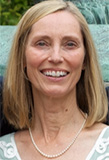The Training
To help address the needs of rheumatology patients of the Navajo Nation, Dr. Mandal and Dr. Grant decided to use the Project ECHO model, which was developed at the University of New Mexico in 2003.2 It’s based on the concept that a small group of specialists can work together to train primary care providers in underserved areas.
The first ECHO program was related to hepatitis treatment, and there are now ECHO programs around the globe for a variety of health conditions. However, few are for rheumatology. Dr. Mandal and Dr. Grant decided to focus their ECHO project on RA instead of multiple conditions because of its prevalence within rheumatology and among the Navajo community.
The ECHO model includes weekly or biweekly webinars, evidence-based guidelines and case-based discussions with de-identified information. The RA training has taken place once a week over 12 weeks at lunchtime, and CME credits are available.
“RA also lends itself well to the week-by-week training of the ECHO model in the sense that it has well-established guidelines for treatment,” Dr. Mandal says.
They created a 12-week curriculum to provide the foundations of RA, extraarticular manifestations of RA, mimics of RA and early treatment steps. The training also covers when to reach out for help from a rheumatologist vs. when the primary care providers can manage something on their own.
Because the sessions take place virtually, Dr. Mandal says she will share analogies of how something may feel during a joint exam, such as a joint with synovitis feeling like a ripe grape. Dr. Mandal and Dr. Grant also recorded some of their joint exams to share with participants.
Support

Dr. Grant
A group called Healthy Native Communities Partnership, based on Navajo Nation, has partnered with the initiative to look at all materials from logistical, cultural and linguistic-specific factors. Also, an in-person event was held with community health representatives who travel around the reservation and visit people with chronic disease, including those with RA, Dr. Grant says.
One issue that arises with this type of program is defensiveness among some specialists. Some may reflect on their specialized training and niche knowledge, and wonder how they could teach it to someone not going through an actual fellowship.
“I think it’s important to be thoughtful about the way we structure this program and what we’re teaching and making sure it’s safe and approachable. But the other piece is primary care doctors all over the country and the world are treating complex rheumatologic disease already,” Dr. Mandal says. “They can either do it with little or no help from rheumatologists, or they can do it with our help and collaboration.”


